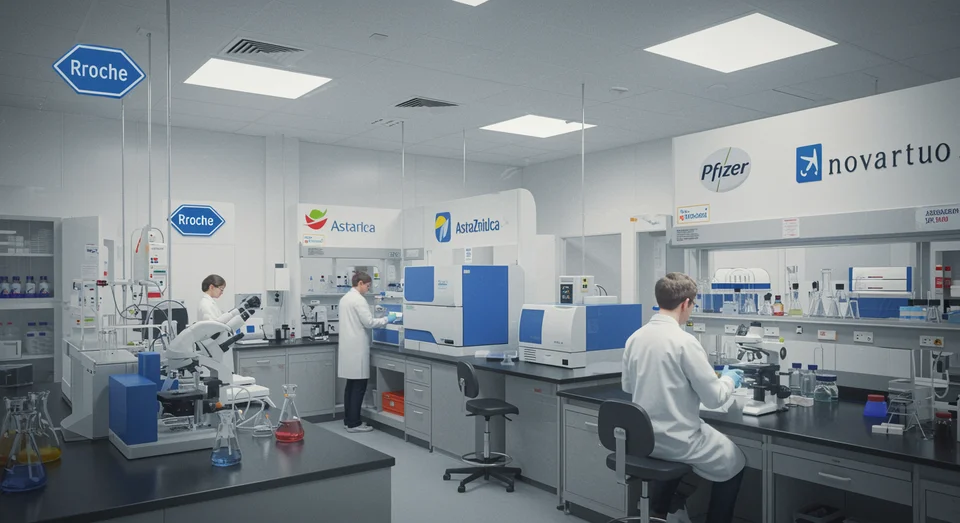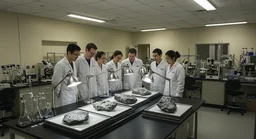Global Asthma Drugs Market to Hit $60.5 Billion by 2035, Fueled by Innovation
229 views
The global asthma drugs market, valued at USD 39.27 billion in 2023, is poised for a transformative expansion, reaching an estimated USD 60.5 billion by 2035. This remarkable growth trajectory is fueled by the rising prevalence of asthma worldwide, coupled with advancements in pharmacological treatments and healthcare accessibility. With North America leading the charge, followed by Europe and Asia-Pacific, the market is witnessing a dynamic interplay of innovation, competition, and emerging trends that promise to redefine asthma care for millions.

A Breath of Innovation: The Future of Asthma Treatment Takes Shape
Asthma, a chronic respiratory condition affecting over 300 million individuals globally, has long been a focus of medical research and pharmaceutical development. The projected growth of the asthma drugs market underscores the urgency of addressing the increasing burden of this condition, which is exacerbated by urbanization, environmental pollutants, and lifestyle changes. At the heart of this expansion lies a surge in demand for innovative therapies, particularly biologics, smart inhalers, and personalized treatment models.
Inhaled corticosteroids, the cornerstone of asthma management, continue to dominate the market, offering effective symptom control and inflammation reduction. However, the landscape is rapidly evolving, with monoclonal antibodies and long-acting beta agonists emerging as powerful adjuncts for severe and refractory cases. These drug classes, designed to target specific immune pathways, are paving the way for precision medicine in asthma care. Meanwhile, inhalation remains the preferred route of administration due to its direct delivery mechanism, though oral and injectable formulations are gaining traction, particularly for biologic therapies tailored to severe asthma phenotypes.
The geographical distribution of market growth reflects a complex tapestry of healthcare infrastructure, economic development, and patient demographics. North America, home to leading pharmaceutical giants like Roche, AstraZeneca, Pfizer, and Novartis, commands the largest market share, bolstered by robust R&D investments and early adoption of cutting-edge treatments. Europe follows closely, driven by progressive healthcare policies and widespread access to biologics. Asia-Pacific, with its burgeoning population and improving healthcare systems, represents a fertile ground for expansion, while South America and the Middle East & Africa (MEA) regions are emerging as promising frontiers, albeit with unique challenges related to affordability and infrastructure.
The competitive landscape of the asthma drugs market is a testament to the relentless pursuit of innovation. Key players are channeling resources into the development of personalized medicine, leveraging genetic insights to tailor treatments to individual patient profiles. The rise of digital health solutions, including smart inhalers equipped with sensors and mobile apps, is revolutionizing disease monitoring and adherence, empowering patients to take control of their condition. Eco-conscious drug formulations, designed to minimize environmental impact, are also gaining traction, reflecting a growing awareness of sustainability within the pharmaceutical industry.
Looking ahead, the future of asthma treatment is poised to be shaped by several transformative trends. The adoption of biologics, which offer targeted and effective interventions, is set to accelerate, particularly for severe asthma cases that resist conventional therapies. Digital health technologies, such as wearable devices and telemedicine platforms, are enhancing patient engagement and enabling real-time tracking of asthma symptoms. Personalized care models, informed by genetic and environmental factors, are redefining the standard of care, ensuring that treatment strategies align with the unique needs of each patient.
While the market's growth is undoubtedly promising, it also raises important questions about equity and access. As innovative treatments become available, ensuring their affordability and accessibility for underserved populations remains a critical challenge. The expansion of healthcare infrastructure in developing regions will be pivotal in bridging this gap, enabling more patients to benefit from advancements in asthma care.
The projected growth of the global asthma drugs market is not merely a reflection of economic potential; it is a beacon of hope for millions of individuals living with asthma. As pharmaceutical companies continue to push the boundaries of science and technology, the promise of improved outcomes, enhanced quality of life, and sustainable solutions beckons. This journey, marked by collaboration, innovation, and a commitment to patient-centric care, holds the potential to transform asthma management and redefine the future of respiratory health.



























